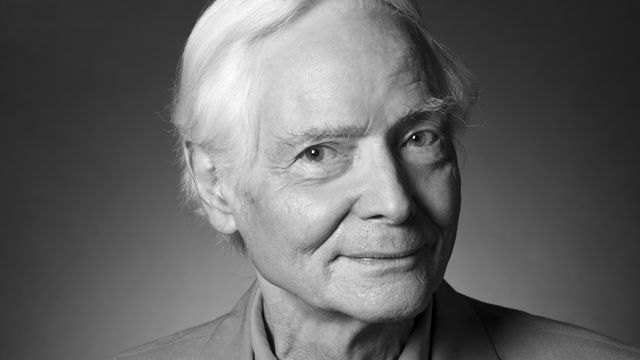The 17th Poet Laureate of the United States, W. S. Merwin has been a force in American poetry for more than 50 years, beginning when W.H. Auden selected his first collection, A Mask for Janus (1952), for the Yale Series of Younger Poets.
Though his style has evolved much over his long career, he has remained influential, receiving nearly every major award for poetry including two Pulitzers for The Carrier of Ladders (1971) and The Shadow of Sirius (2009).
Merwin embraced verse at a very young age. Growing up the child of a minister in Union City, New Jersey and Scranton, Pennsylvania in the 1930s, his earliest verses were hymns written as a young child. “As soon as I could write with a little pencil, I was writing these little hymns and illustrating them and I thought they should be sung in church,” Merwin recalled during an interview on Bill Moyers Journal, “But they never were.”
Merwin moved to Hawaii to study Buddhism in 1976 and settled on a former banana plantation, where he restored the land to its natural rainforest state and populated it with rare and endangered palm trees.
Merwin has published over twenty books of poetry, including Present Company (2007), Migration: New & Selected Poems (2005), which won the 2005 National Book Award, The Pupil (2002), The River Sound (1999), which was named a New York Times Notable Book of the Year, Flower and Hand: Poems 1977-1983 (1997), The Vixen (1996) and Travels (1993), which received the Lenore Marshall Poetry Prize. He has also published nearly 20 books of translation.
Merwin has received, among others: the Aiken Taylor Award for Modern American Poetry, the Bollingen Prize, a Ford Foundation grant, the Ruth Lilly Poetry Prize, the PEN Translation Prize, the Shelley Memorial Award, the Wallace Stevens Award, fellowships from the Academy of American Poets, the Guggenheim Foundation, the National Endowment for the Arts and the Rockefeller Foundation. Merwin served as chancellor of the Academy of American poets.

